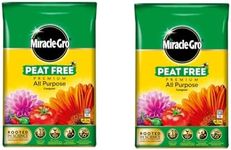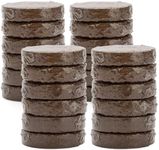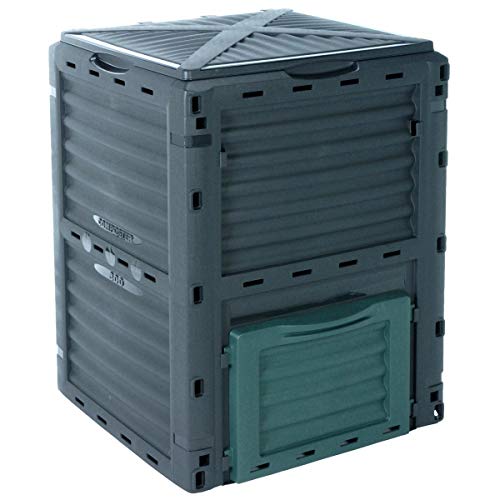Buying Guide for the Best Composts
Choosing the right compost can make a significant difference in the health and growth of your plants. Compost is essentially decomposed organic matter that enriches the soil, providing essential nutrients and improving soil structure. When selecting compost, it's important to consider the specific needs of your plants and the conditions of your garden. Here are some key specifications to help you make an informed decision.Nutrient ContentNutrient content refers to the levels of essential nutrients like nitrogen (N), phosphorus (P), and potassium (K) in the compost. These nutrients are crucial for plant growth. High nutrient content is beneficial for nutrient-hungry plants like vegetables and flowers, while lower nutrient content may be sufficient for less demanding plants. Check the nutrient ratio on the compost packaging and match it to the needs of your plants.
pH LevelThe pH level of compost indicates its acidity or alkalinity. Most plants prefer a neutral pH (around 7), but some plants, like blueberries and azaleas, thrive in more acidic conditions. Compost with a pH level that matches your plants' preferences will help them absorb nutrients more effectively. Test your soil's pH and choose compost that complements it.
TextureTexture refers to the particle size and consistency of the compost. Fine-textured compost is ideal for seed starting and potting mixes, as it provides good aeration and drainage. Coarser compost is better for improving soil structure in garden beds. Consider the application and choose a texture that suits your gardening needs.
Organic Matter ContentOrganic matter content is the amount of decomposed plant and animal material in the compost. High organic matter content improves soil structure, water retention, and microbial activity. For heavy clay soils, compost with high organic matter can improve drainage, while sandy soils benefit from increased water retention. Assess your soil type and select compost with the appropriate organic matter content.
MaturityMaturity indicates how fully decomposed the compost is. Mature compost is dark, crumbly, and has an earthy smell, making it safe to use directly on plants. Immature compost may still be decomposing and can harm plants by competing for nitrogen. Always choose mature compost to ensure it provides immediate benefits to your garden.
Source MaterialSource material refers to the original organic materials used to make the compost, such as plant waste, manure, or food scraps. Different source materials can affect the nutrient content and suitability for certain plants. For example, compost made from manure is rich in nitrogen, while leaf mold is excellent for improving soil structure. Consider the source material and choose compost that aligns with your gardening goals.
















